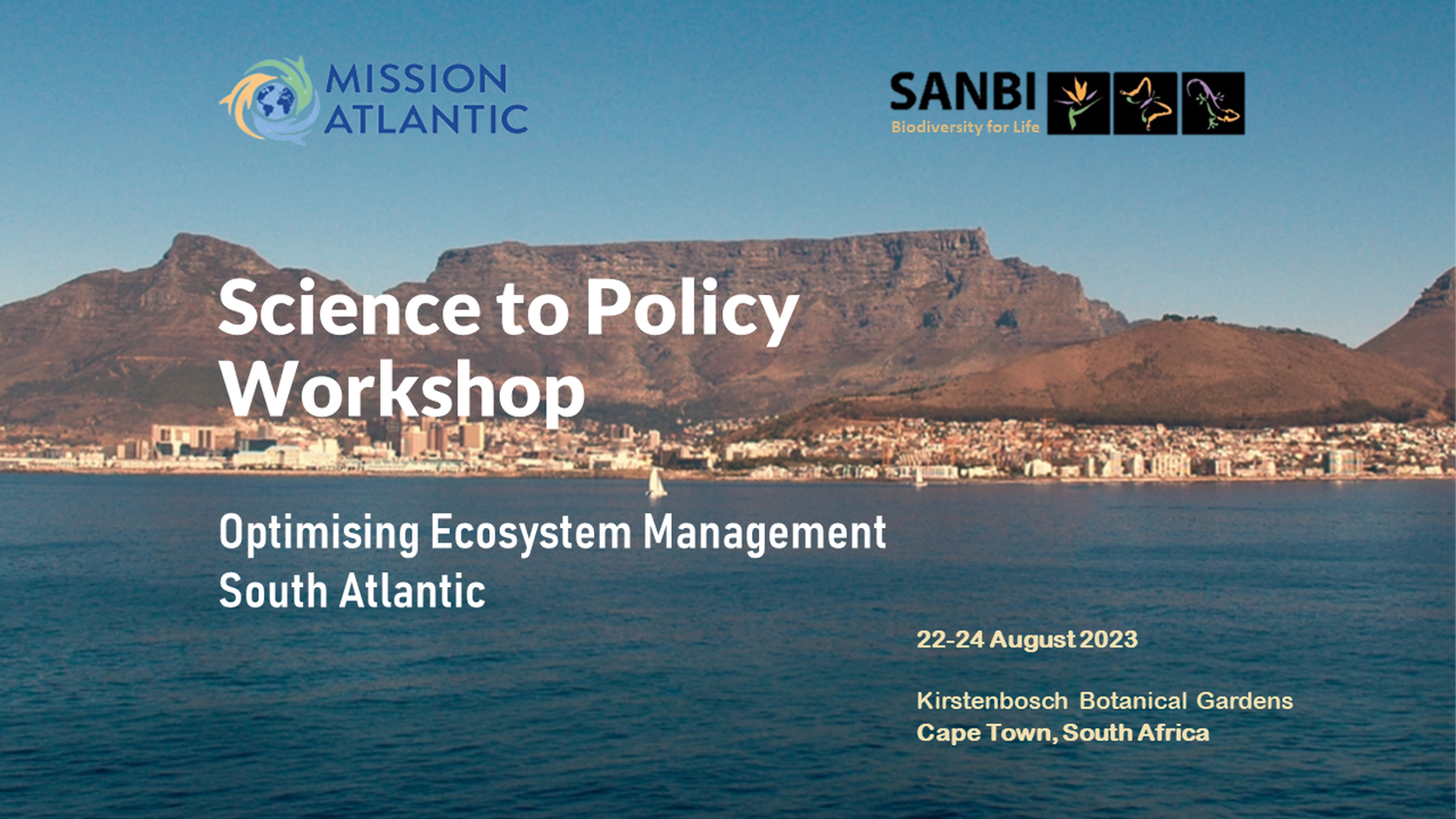22 Aug 2023 - 24 Aug 2023
Venue:
- SANBI, Kirstenbosch (Cape Town), South Africa
Objectives:
- Share research progress across international projects (Mission Atlantic, iAtlantic, AtlantECO, TriAtlas, One Ocean Hub) in the region.
- Distil common understandings and recommendations across projects.
- Engage with policymakers to discuss progress, challenges and opportunities to optimise the management of marine ecosystems.
Preliminary Agenda:
- Day 1: Present and discuss project outputs (ecosystem mapping, modeling, IEA for the region, etc.).
- Day 2: Craft key messages for policymakers.
- Day 3: Deliver and discuss key messages with policymakers (e.g., in roundtables; policymakers will be invited only for this day). Debriefing (post-evaluation, next steps identified based on input of policymakers).
Outline:
The Science to Policy Workshop, focused on optimising ecosystem management in South Atlantic countries of Africa, namely Namibia, Angola, and South Africa, is set to take place at the picturesque Kirstenbosch National Botanical Gardens (Cape Town, South Africa).
With a line-up of international projects and policymakers, the event convened by Mission Atlantic (SANBI) aims to bridge the gap between scientific research and policy implementation for marine ecosystems.
The three-day agenda promises stimulating discussions and presentations. On day 1, participants will focus on ecosystem-based management and share the policy-relevant results achieved by the international projects Mission Atlantic, iAtlantic, AtlantEco, TriAtlas, and One Ocean Hub. Day 2 will be dedicated to crafting key messages for policymakers, covering critical areas such as ecosystem mapping, data availability, climate science-policy linkages, and spatial planning. Finally, on day 3, policymakers will discuss the consolidated key messages from the projects, followed by world cafe discussions and dialogues to foster meaningful interactions.
The event holds great promise for advancing sustainable ecosystem management in South Africa, Namibia, and Angola, by leveraging scientific expertise and engaging policymakers in meaningful dialogue about effective policies and actions that safeguard our marine ecosystems.
